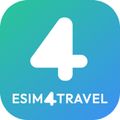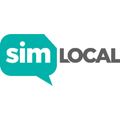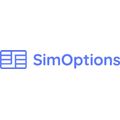nextSIM.eu aggregates eSIM data plans from leading GSM operators, offering instant connectivity in over 200 destinations – at local rates, for both individual users and businesses. Compatible with smartphones, tablets, and smartwatches, eSIM routers, laptops, IoT devices, cars, sensors etc.

nextSIM.eu aggregates eSIM data plans from leading GSM operators, offering instant connectivity in over 200 destinations – at local rates, for both individual users and businesses. Compatible with smartphones, tablets, and smartwatches, eSIM routers, laptops, IoT devices, cars, sensors etc.
Promo Code
nextSIM eSIM Data Plans for Burkina Faso
Frequently Asked Questions
Does nextSIM offer unlimited data eSIM for Burkina Faso?
nextSIM does not provide a true unlimited data eSIM for Burkina Faso. The plans that include “Unlimited” in their name cap data at 1 GB per day or 2 GB per day and list a reduced speed of 512 kbps or 2000 kbps once the daily limit is reached, so high‑speed data is still limited.
For travelers who need more data without throttling, nextSIM offers fixed data plans such as the 10 GB 30Days Standard plan priced at $156.11 USD, the 5 GB 30Days Standard plan at $84.78 USD, or the 3 GB 30Days Standard plan at $51.15 USD. These plans provide the stated amount of high‑speed data for 30 days and may be a more cost‑effective option for heavy data users.
Does nextSIM offer Burkina Faso eSIM with phone number and SMS?
NextSIM does not provide an eSIM plan that includes a local phone number or SMS capability for Burkina Faso. The only plans available from this provider for the country are data‑only. Travellers can still communicate through voice or text using popular VoIP applications such as WhatsApp, Telegram or iMessage, which operate over a data connection.
How many data plans does nextSIM offer for Burkina Faso?
nextSIM offers 18 single‑country data plans for Burkina Faso and does not provide any multi‑country options. Pricing ranges from $18.56 to $3, 985.46 while data caps go from 1 GB to 10 GB, and validity periods span 1 to 30 days. The plans include 6 daily‑cap options that replenish data each day and 12 fixed‑cap options that provide a set amount of data for the entire validity period.
Summarized by Gen AI. Last updated:




